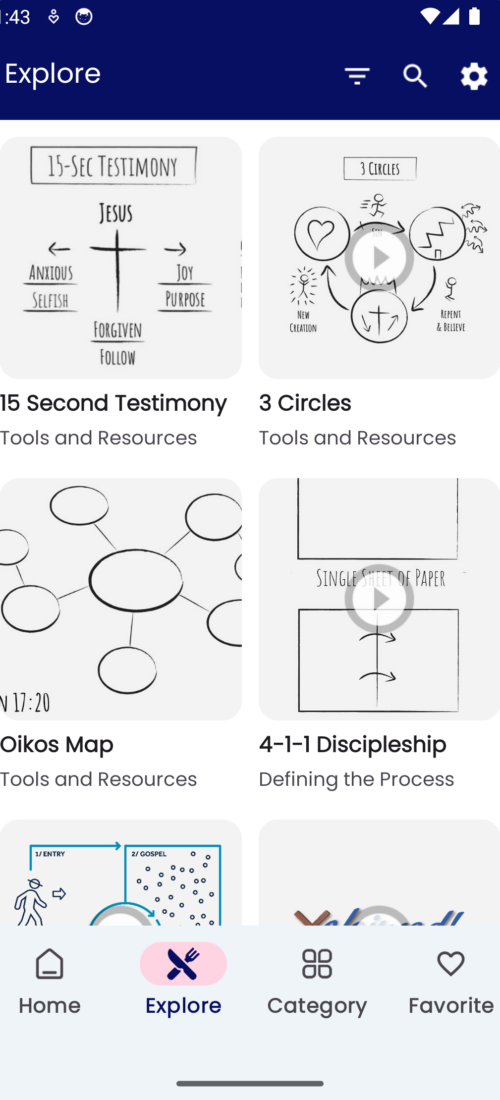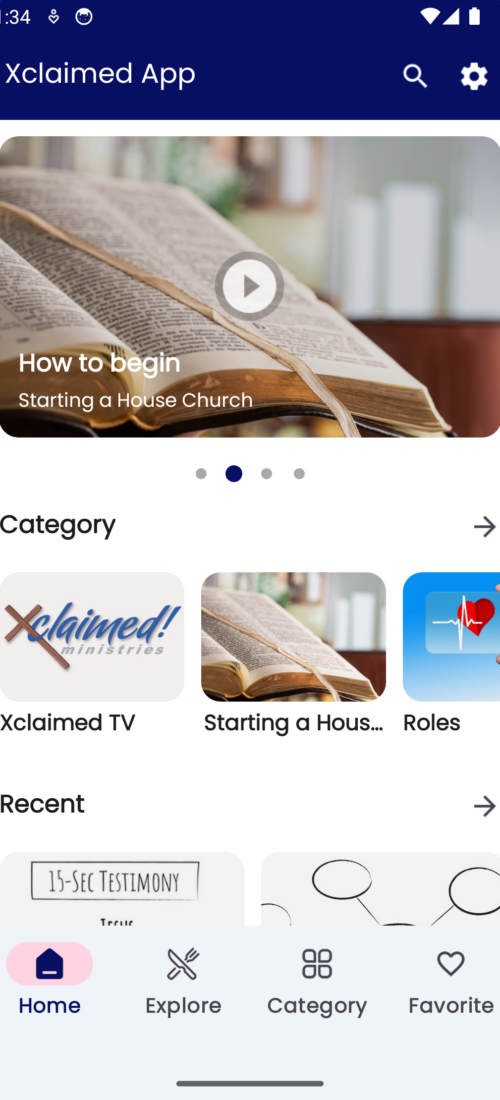6 Simple Steps to Starting an Effective House Church Now
House Church APP
IOS APP
Android APP
Why consider a house church
A recent national study found that when asked if your best friend invited you to church would you go? 64% said “no”. Of the 64% no’s when asked if that same best friend invited you to their home to talk about Jesus, 73% of those no’s said “yes”.
Do you want your friends to know about Jesus? Start a house church! More of your friends will come to your house than go to a church building.
What impact could a house church really have?
In Acts 19, Paul says that within a 2 year period, ALL of Asia (between 8-15 million people) had heard the Gospel. Imagine what would happen if we were as dedicated as they were for two years of sharing the Gospel and planting house churches. Our neighborhoods would change drastically!
We have learned an amazing way of growing the church through house churches. Contact us if you would like to learn more.
Misconceptions about starting a house church
1) “I already attend a Bible study”. It is not a Bible study. A house church has all the necessary characteristics of a church as mentioned in the Book of Acts.
2) “I don’t know enough about the Bible to teach it.” No one needs a Theology degree or strong Biblical knowledge to start a house church. We train average people to share the Gospel and make disciples in a very easy format.
3) “I don’t have a large enough home.” The great thing about house church is the goal of staying small, 15 people is about the maximum you would want to work with. Our goal is to train people to start their own house churches. Once they are trained, they should leave the house church and start their own. That’s the goal. Making disciples and multiplying.
4) “There will be Biblical discussions and disagreements. What about theological differences?” Yes. Maybe, but the study method we teach, doesn’t move in that direction. It is a format that helps study the Word and helps us teach others about Jesus.
5) “Someone else is called to do it.” Actually, all Christians are called to be ambassadors for Jesus Christ. We can’t push this job onto someone else, it is our call to share the Good News.
Formerly known as simple church
The house church model that we teach was formerly called simple church. It was called that because the entire concept is simple, it is reproducible, and anyone (even a child) can understand each role. In fact, our teen group uses the house church model in most of their meetings and they run the entire meeting by themselves.
We changed the name to house church because that’s what it is; it is a house church. It is still a simple concept, but it provides a greater purpose without the complexity of a legacy church.
The 6 Simple steps to starting an effective House Church which is simple, reproducible, and understandable for nearly anyone. This house church format works for multiple age groups.
Steps to Starting an Effective House Church
-
- One interesting aspect of house church is that there is no specific leader (pastors, don’t freak out yet; training and equipping is at work here. More details follow). Everyone has the opportunity to participate and each week roles change. For example, the individual that closes in prayer this week, may be providing worship next week.
- A house church model should be 15-20 people max. It is a multiplication solution rather than addition. It is one of the steps for keeping it simple.
- To be considered a healthy house church, we believe that there are 9 characteristics within the early church (Book of Acts) that should be evident within the church. There are three additional characteristics that are mentioned but not necessary within each church.
- Depending on the size of the house church, plan a time slot between 90 mins to 120 mins. We teach a process that keeps the timeline achievable each time.
- Each meeting covers vision, accountability, worship, study, fellowship, and pastoral care.
- House church involves discipleship and evangelism. Typically, many Christians cringe at these words. Many Christians feel that they do not have enough Bible knowledge to lead someone to Christ or to disciple anyone. Another fear with evangelism is that people assume it has to do with shouting out on a street corner or going door to door with fliers. The way that we teach discipleship and evangelism is nothing like that at all. In fact, people are often surprised how easy it is to share the Gospel and to help disciple a new believer. We teach the tools that makes this easy and effective.
Additional Information?
Contact us
xcm@xclaimed.org





